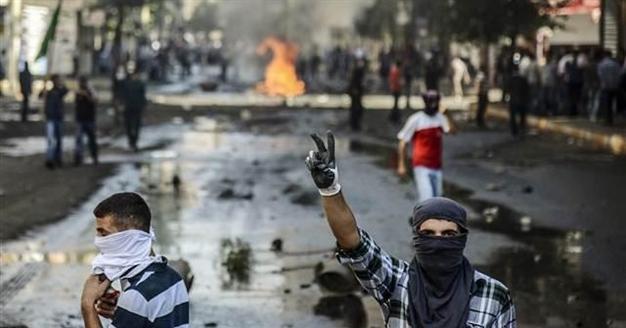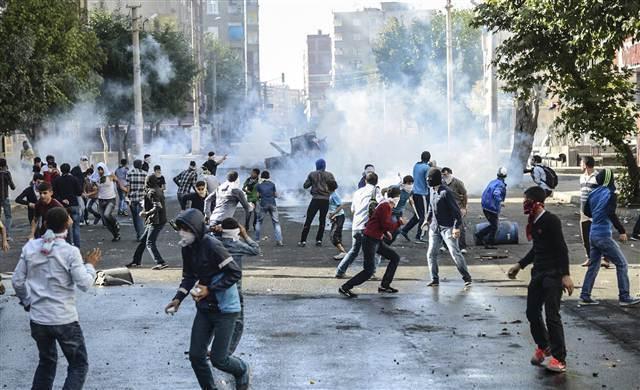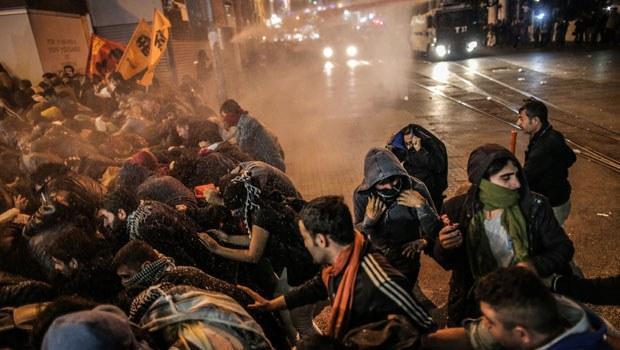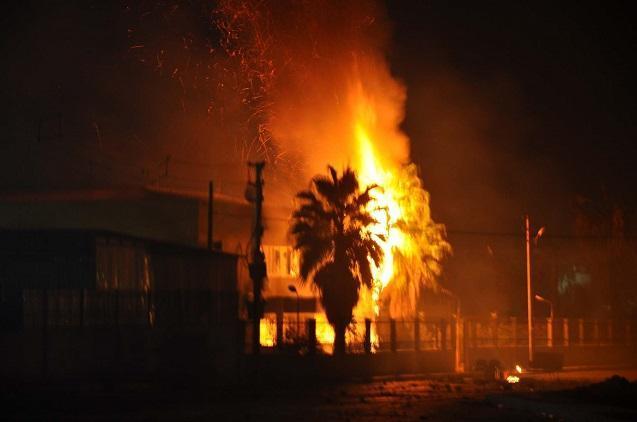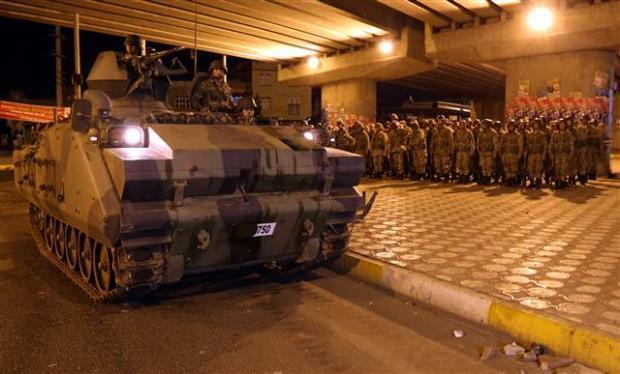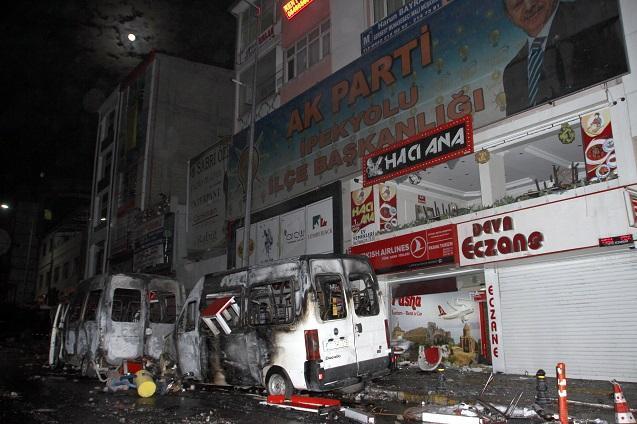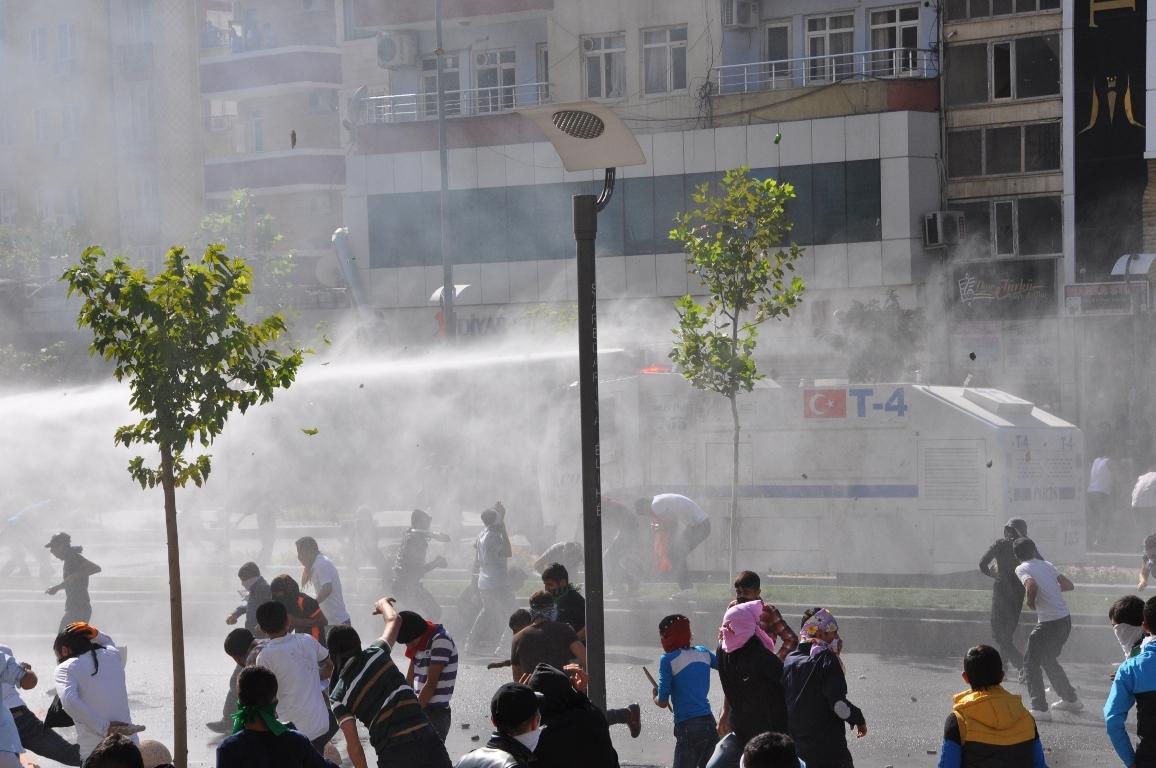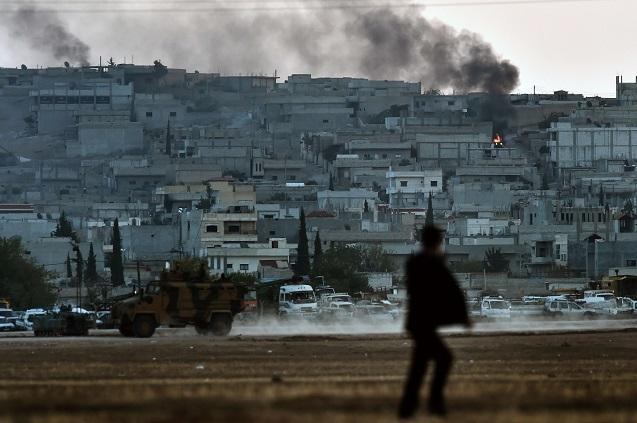How the ISIL fire in Syria burned 22 Turkish cities: In four questions
ISTANBUL

1- WHAT IS HAPPENING IN TURKEY?
* At least 26 people were killed and scores of protesters, as well as policemen, were injured in
clashes throughout Turkey on Oct. 7. The highest toll was in the southeastern province of Diyarbakır with eight deaths. Other eastern provinces including Van, Batman, Siirt, Muş, Mardin, Şanlurfa, Bitlis, Adıyaman, Hakkari, Tunceli and Şırnak also witnessed protests that led to casualties and arrests.
* Thirty people, including eight policemen, were injured in Istanbul, while 98 protesters were detained, according to the Istanbul governorate. A group of masked protesters barricaded a road in Ankara before being dispersed by the police. İzmir, another western metropolis, saw 26 arrests. Adana, Antakya, Osmaniye, Antalya, Eskişehir, Denizli and Kocaeli are other cities where protests were staged.
2- WHAT IS THE GOVERNMENT DOING?
* Police used tear gas and water cannons against protesters, some of whom were throwing molotov cocktails at security forces and local buildings including schools and banks. A curfew has been declared in six provinces and schools went on holiday in several districts. Turkish Airlines flights to Diyarbakır, as well as Adana-Mersin train services, have been cancelled.
A high school in Mersin was torched late on Oct. 7
* “Violence is not a solution method. Violence will find its response. This irrational attitude should be ended immediately,” Interior Minister Efkan Ala said late Oct. 7. Prime Minister Ahmet Davutoğlu is scheduled to chair a security summit on Oct. 8. Meanwhile, Diyarbakır, Mardin, Van and Batman are witnessing soldiers patrolling the streets for the first time in many years.
3- WHO ARE THE PROTESTERS?
* Most protesters who initially hit the streets were either supporters of the Kurdish problem-focused Peoples’ Democratic Party (HDP) in Parliament, or the outlawed Kurdistan Workers’ Party (PKK), which share the same grassroots base. Some protesters attacked the local branches of several parties, including the ruling Justice and Development Party (AKP) and the Nationalist Movement Party (MHP).
A local AKP branch in Van province was attacked
* Clashes escalated when other groups also took to the streets. The worst violence was seen in Diyarbakır during a reported gunfight between PKK supporters and Hizbullah, a radical Islamist group whose members are mostly Kurdish and who allegedly aided the state in the torture and killing of Kurdish activists in the 1990s. The group’s affiliate, the Free Cause Party (Hüda Par), was also involved in the clashes. While Kurdish protesters clashed with Turkish nationalists in western cities, pro-jihadists were also reportedly on the streets in a number of southern provinces.

A branch of the pro-Hizbullah party Hüda Par in Diyarbakır was also attacked
4- WHAT DO THEY WANT?
* The initial protests were part of a global call for action to protect Kurds in the northern Syrian town of Kobane on the Turkish border against the Islamic State of Iraq and the Levant (ISIL). Many Kurds want Turkey to ease the passage of weapons to the besieged forces of the People’s Protection Units (YPG) in Kobane, or even Turkey’s military involvement against ISIL. The Turkish nationalist and Kurdish Islamist/jihadist response to the latest protests, on the other hand, are seen simply as reactive.
Smoke rises from the city centre of the Syrian town of Ain al-Arab, known as Kobane by the Kurds, as seen from the Turkish town of Suruç on the Turkey-Syria border, on Oct. 7, 2014. AFP PHOTO / ARIS MESSINIS
* The Turkish government has pointed the finger at the PKK and views the protests as a kind of blackmail, at a time when the peace process dialogue between the Turkish state and Kurds has arrived a crucial crossroads. Ankara has confined itself to humanitarian relief operations for Kobane, ruling out direct military action as long as a safe haven and a no-fly-zone that will ultimately oust Bashar al-Assad are not imposed by the international community.
